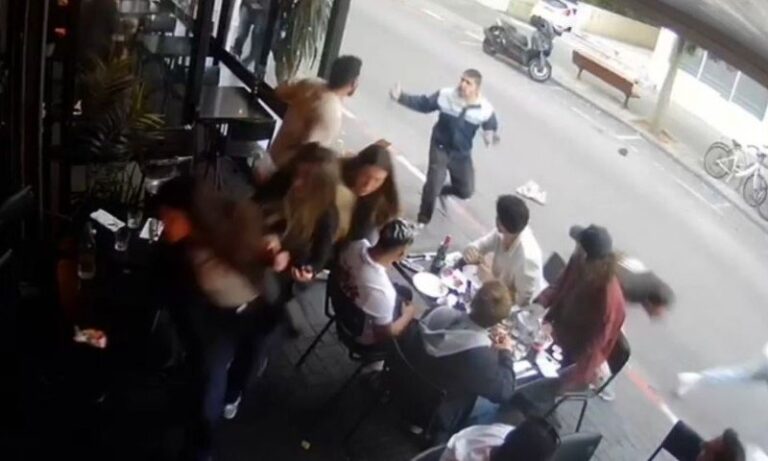The polio virus has been found in New York City sewage, but officials are stressing that the highest risk is for people who haven’t been vaccinated.
Polio was once one of the nation’s most feared diseases, with annual outbreaks causing thousands of cases of paralysis. Its elimination in the U.S., officially declared in 1979, is considered one of the nation’s greatest public health victories. Yet cases have cropped up occasionally since then, often among people who had traveled to other countries.
Recently, an unvaccinated young adult north of New York City contracted polio. On Friday, health officials in the nation’s largest city said they had found the virus in wastewater samples, suggesting it was spreading among the unvaccinated.
Here are some details on polio and the vaccine:
HOW DOES POLIO SPREAD?
Polio is considered very contagious and spreads mostly from person to person, through contaminated water and via fecal particles.
Health officials say the virus also can spread through droplets from an infected person’s cough or sneeze, though that is less common.
WHAT ARE THE SYMPTOMS?
Most infected people have no visible symptoms. About a quarter will endure a few days of flu-like symptoms, such as fever, sore throat, headache and nausea.
A small fraction of people, however, can get more serious illness. The virus can infect a person’s spinal cord, causing paralysis and possibly permanent disability and death.
AREN’T MOST AMERICANS VACCINATED AGAINST POLIO?
Yes.
U.S. children are still routinely vaccinated against polio and the shots are considered to be highly effective. Federal officials recommend four doses: to be given at 2 months of age; 4 months; at 6 to 18 months; and at age 4 through 6 years. Some states require only three doses.
According to the Centers for Disease Control and Prevention’s most recent data, about 93% of 2-year-olds had received at least three doses of polio vaccine.
IF I AM VACCINATED AGAINST POLIO, DO I NEED TO DO ANYTHING?
For most people, no.
Adults who were fully vaccinated as children have protective antibodies in their blood for decades, according to the CDC. In a nationwide study of adults aged 40-49 about a decade ago, around 90% had protective antibodies to the virus.
That said, health officials previously have recommended boosters in some cases, like for adults who are at increased risk of coming in contact with the polio virus because of their travel or work.
WHAT SHOULD I DO IF I AM UNVACCINATED?
Health officials recommend that unvaccinated people get the shots. In New York, clinics have been set up to make the vaccines available.
People who are unvaccinated or incompletely vaccinated are at greatest risk of paralysis from polio. The person in Rockland County who was diagnosed with paralytic polio was unvaccinated.
(AP)












2 Responses
All you need to know is that it is completely normal and expected for the vaccine-derived attenuated virus to be present, and in some ways it’s even desirable, but if you’re vaccinated it poses almost no danger to you. The vaccine is well known and thoroughly tested, and there is no reason not to give it to your children, or to yourself if your parents were irresponsible and neglected to do so. This has no connection with the Wuhan vaccine.
No, it has no connection with the “wuhan” vaccine @milhouse- it’s just been approved by the same corrupt agency that handled the testing and approval. It’s been through the same lackadaisical safety testing, the same blind eye to side effects, any side effects are always “unrelated”. Plus they give them nice and young to infants who barely do anything except breathe and eat and sleep and poop so neurological side effects are often unrecognized. I’m not saying they don’t prevent polio. I’m saying that the public has no idea about the true cost of vaccines simply because they haven’t been studied properly. Which is completely on purpose.